A FABULOUS career saw Feroz Khan go from playing supporting roles to headlining films as an actor, director and producer. Born on September 25, 1939, he left behind an impressive body of work including all-time classics before passing away on April 27, 2009, aged 69.
Eastern Eye decided to mark the icon’s birth anniversary this week with an all you-need-to-know, A-to-Z about him.
A is for Arzoo: After narrowly missing out on a career-changing break in 1964 (see M), the actor delivered a star-making turn in hit film Arzoo (1965). The same year saw him hold his own opposite established actors Raaj Kumar and Ashok Kumar in successful film Oonche Log.
B is for Bengaluru: The multi-talented star was born Zulfiqar Ali Shah Khan in Bengaluru (then Bangalore) to a father of Afghani descent and a mother of Persian ancestry. He was educated in the city and moved to Mumbai (then Bombay) after his schooling to pursue an acting career.
C is for Cancer: The heavy smoker died of lung cancer in 2009. While undergoing treatment he expressed a desire to visit his Bangalore farmhouse and passed away there soon after. He was buried in the city near his mother’s grave.
D is for Debut: After playing small extra roles in films like Ham Sab Chor Hain (1956) and Bade Sarkar (1957), Khan made his full-fledged acting debut playing a supporting character in family drama Didi (1960), which was headlined by Sunil Dutt.
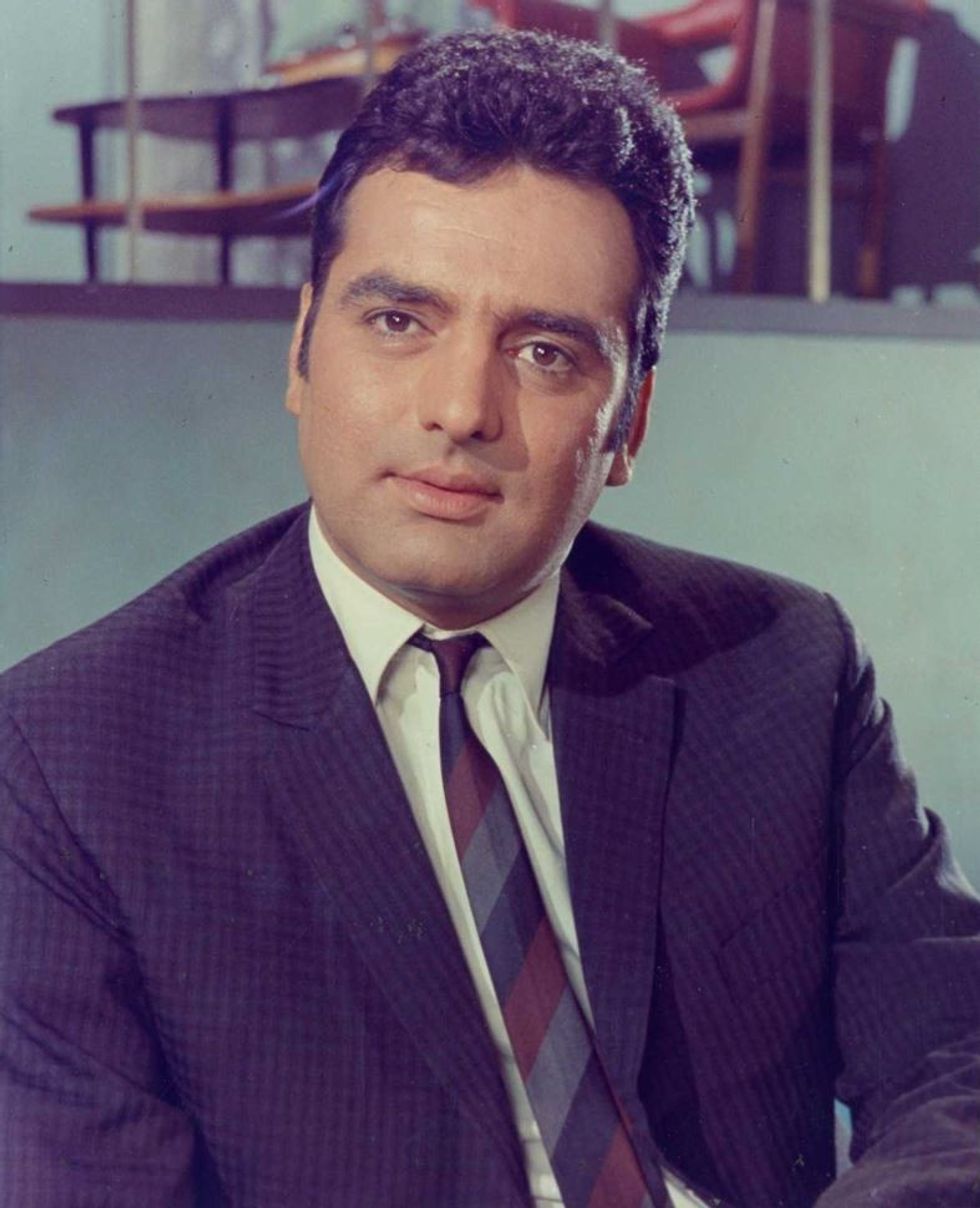
E is for Enthusiast: The actor was a big fan of horses and motorcars. Whether it was in his personal life or onscreen, he loved cool cars. His film Apradh (1972) was the first from India to showcase auto racing in Germany.
F is for Family: Khan is, of course, the father of actor Fardeen Khan, who married the daughter (Natasha Madhwani) of legendary actress Mumtaz. His other famous relatives include Sanjay Khan (brother), Akbar Khan (brother) and Zayed Khan (nephew). His niece Sussanne Khan was once married to Hrithik Roshan.
G is for Gabbar Singh: Actor Danny Denzongpa famously turned down the role of Bollywood’s greatest villain Gabbar Singh in Sholay (1975) because he was committed to play the antagonist in Khan’s movie Dharmatama (1975), which was inspired by The Godfather and became a huge hit.
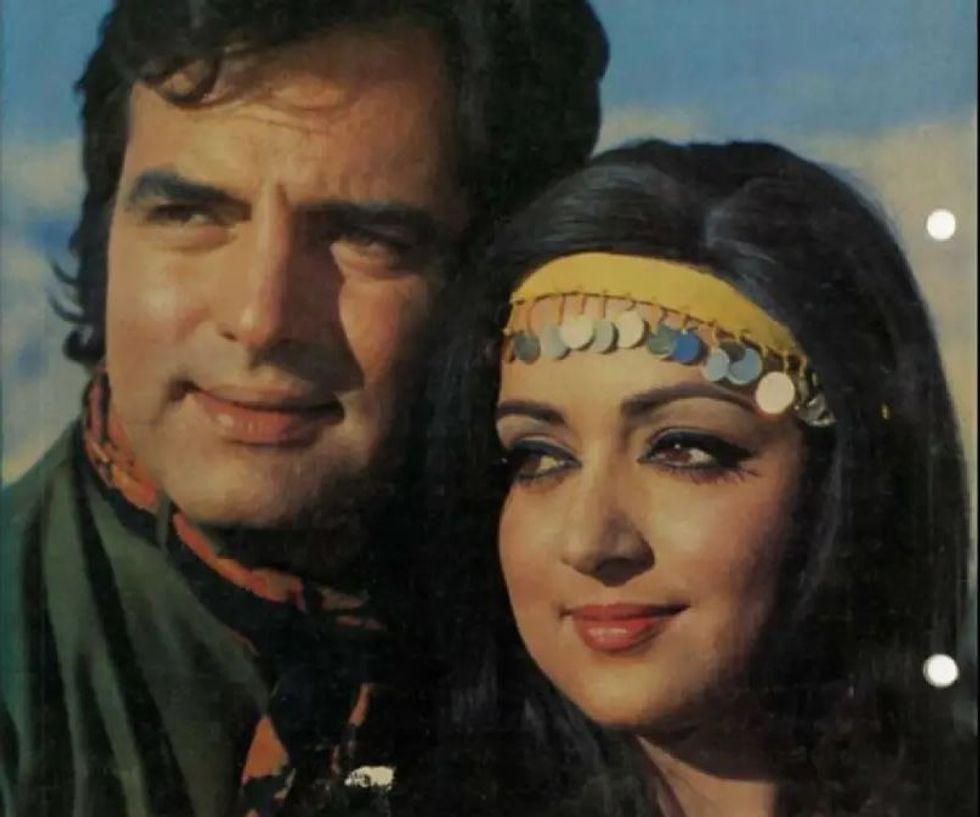
H is for Hits: He delivered successful films during his career including Arzoo (1965), Safar (1970), Upaasna (1971), Kala Sona (1975), Dharmatma (1975), Qurbani (1980), Dayavan (1988) and Yalgaar (1992). Other notable films included Aadmi Aur Insaan (1970), which earned him a Filmfare best supporting actor award, and Apradh (1972), where he made his debut as a producer/director.
I is for International: Whether it was starring in Tarzan Goes To India (see T), introducing western pop into the subcontinent (see Z) or filming at locations like Afghanistan, Germany, Australia and the UK, he always had an international outlook when it came to cinema.
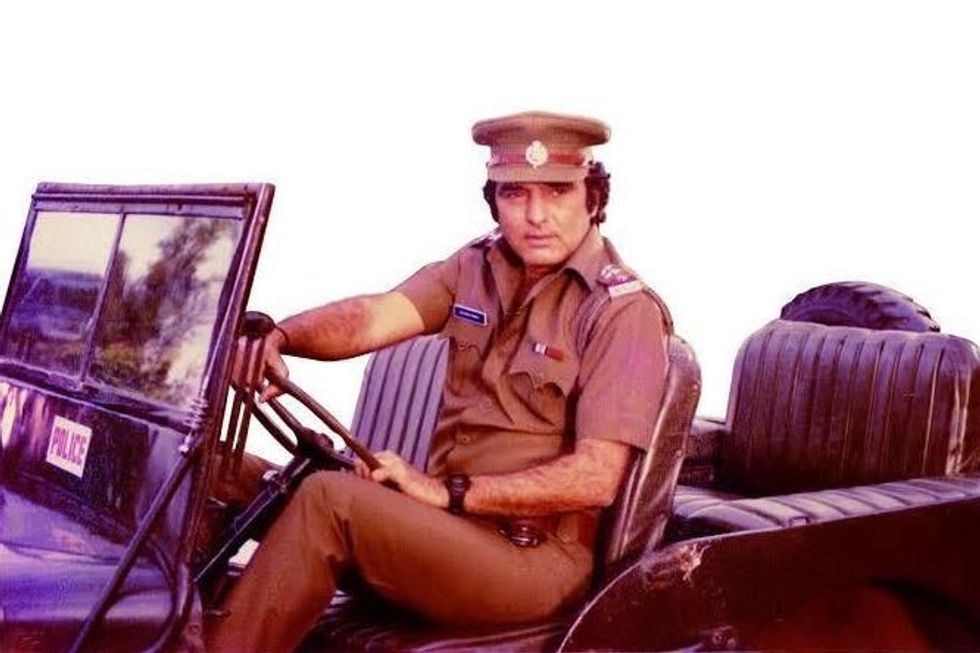
J is for Janbaaz: He produced, directed, and starred in action drama Janbaaz (1986), which was one of the movies that helped catapult Anil Kapoor to the top of Bollywood.
K is for Khote Sikkay: His 1974 curry western Khote Sikkay revolved around men protecting a village from dacoits. It arrived in cinemas over a year before record-breaking film Sholay (1975), which had a strikingly similar plotline.
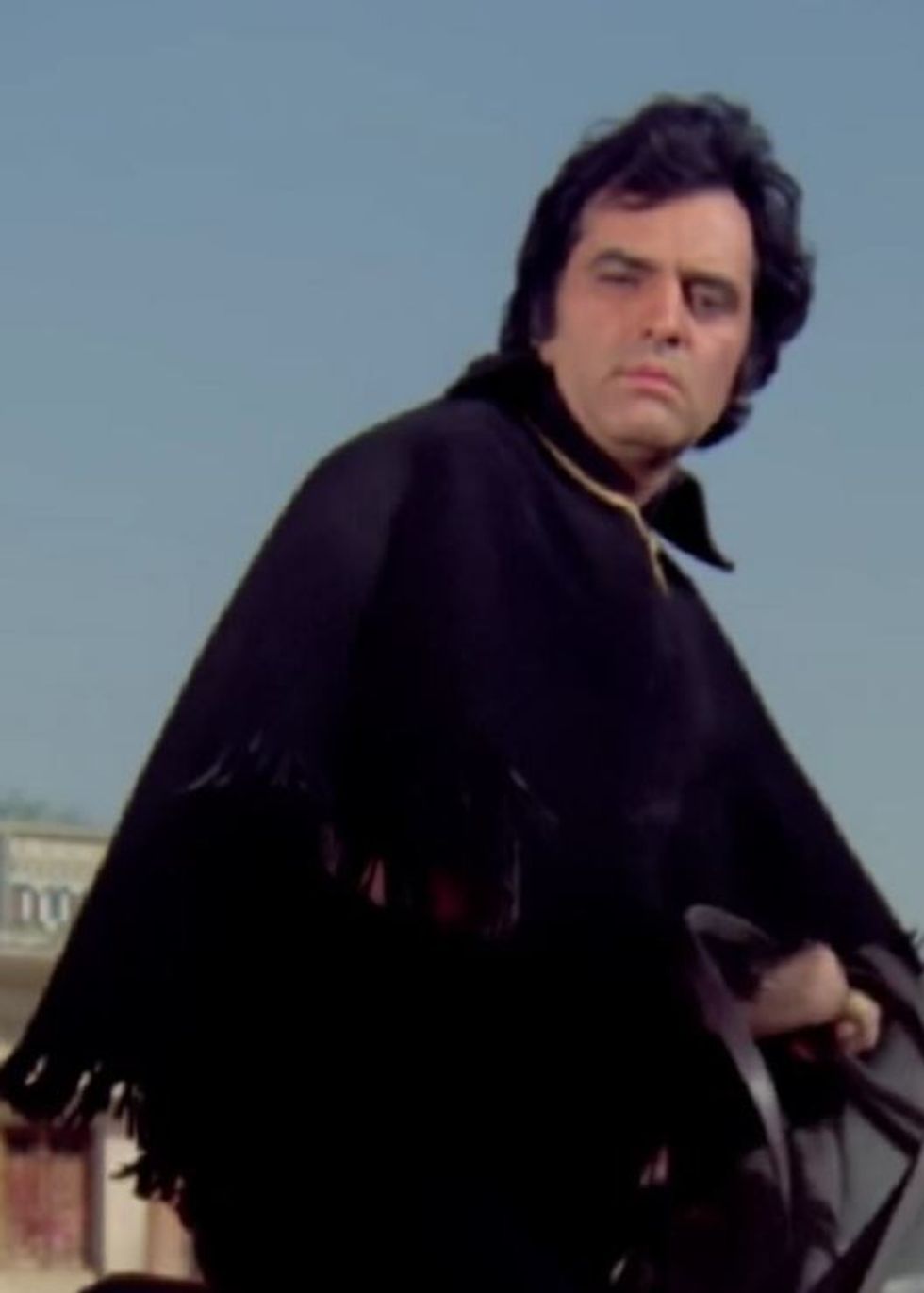
L is for Lifetime achievement: The Bollywood icon may have missed out on major honours throughout his career, but he was given well-deserved lifetime achievement trophies by IIFA, ZEE and Filmfare awards.
M is for Missed out: While trying to establish himself, Khan narrowly missed out on various plum projects. He was considered for the lead role in Son Of India (1962) by ace director Mehboob Khan. Raj Kapoor had promised him Sangam (1964) if Rajendra Kumar declined, but he didn’t. He was in the running to star alongside Dilip Kumar’s Aadmi (1968), but Manoj Kumar bagged the role. Khan missed out on Farz (1967) because he was booked for another film.
N is for Nagin: Khan regularly acted in multi-starrers with other famous faces. He was one of many established leading men who appeared in the film Nagin, which revolves around a shape-shifting snake woman taking revenge on these famous faces.
O is for Outfit: The self-styled cowboy became famous for wearing old western-inspired outfits in films and real life. This, combined with his action persona, led to him being nicknamed the Clint Eastwood of India.
P is for Producer/director: After starring in many movies, Khan made his debut as a producer/director with action thriller romance Apradh (1972). A sample from the song Ae Naujawan Hai Sab Kuchh Yahan from the film was used by The Black Eyed Peas for their hit song Don’t Phunk with My Heart in 2005. His further successes as a producer, director and star would include Dharmatma (1975), Qurbani (1980) and Janbaaz (1986).
Q is for Qurbani: The biggest success of the multi-talented star’s career was the 1980 action entertainer Qurbani, which became the highest grossing Bollywood film of that year. He co-wrote, produced, directed and starred in the stunning success, which had everything from a superb soundtrack to action, emotion and international locations.
R is for Rebel: The hard-living star was known to be a rule-breaking rebel, both in his personal and professional life. Legend has it that when actor Raaj Kumar tried to mock him in public, Khan reacted by pulling off his hairpiece.
S is for Sundays: According to legend, Feroz Khan had refused cult classic Hera Pheri (1976) opposite Amitabh Bachchan because it required him to work on Sundays, which he didn’t do.
T is for Tarzan: He got an early international acting break in Tarzan Goes To India (1962), which was a co-production between the UK, the US and Switzerland. He played Prince Raghu Kumar in the India-set action adventure headlined by Jock Mahoney as Tarzan.
U is for Upaasna: He starred alongside his younger brother Sanjay Khan and favourite leading lady Mumtaz in Upasana (1971). It was one of his last sensitive performances before he shifted his focus to action-oriented films.
V is for Vinod Khanna: Actor Vinod Khanna (above, centre) delivered his last blockbuster hit Qurbani (1980) before quitting Bollywood to join the Rajneesh cult. He made a comeback to the industry with a lead role in Feroz Khan’s gangster epic Dayavan (1988).
W is for Welcome: After a prolific career, Khan made his final acting appearance playing a powerful underworld boss in hit comedy Welcome (2007).
X is for X-rated: The producer/director didn’t shy away from adding saucy scenes and barely-there costumes into his films whenever possible. Madhuri Dixit later regretted doing a kissing scene in his film Dayavan (1988).
Y is for Yalgaar: Khan had planned to make a movie titled Yalgaar in 1987 but shelved it. He then produced, directed and starred in a film with the same title in 1992. After that movie he took a break from acting for 11 years.
Z is for Zeenat Aman: Khan took the inspired decision to get international pop maestro Biddu to compose the Qurbani song Aap Jaisa Koi. The track, picturised on Zeenat Aman, was a path-breaking moment. It made teenaged singer Nazia Hassan a big star and helped launch pop music in the subcontinent.
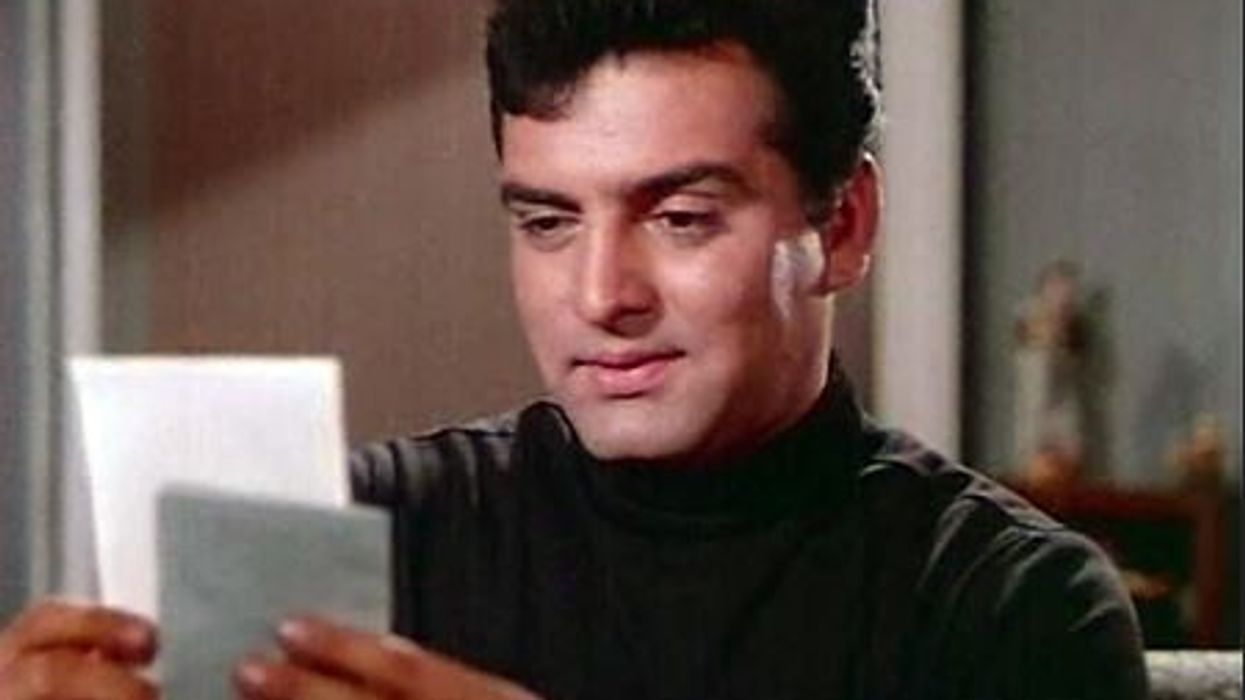
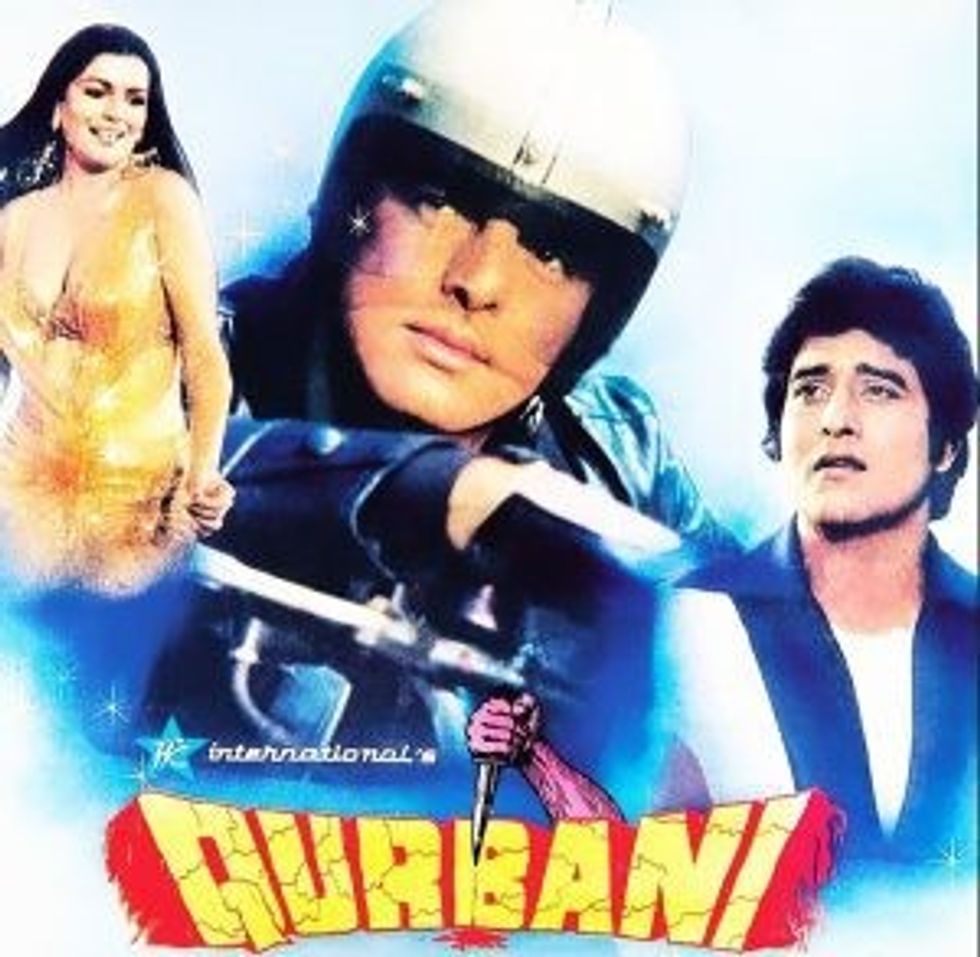
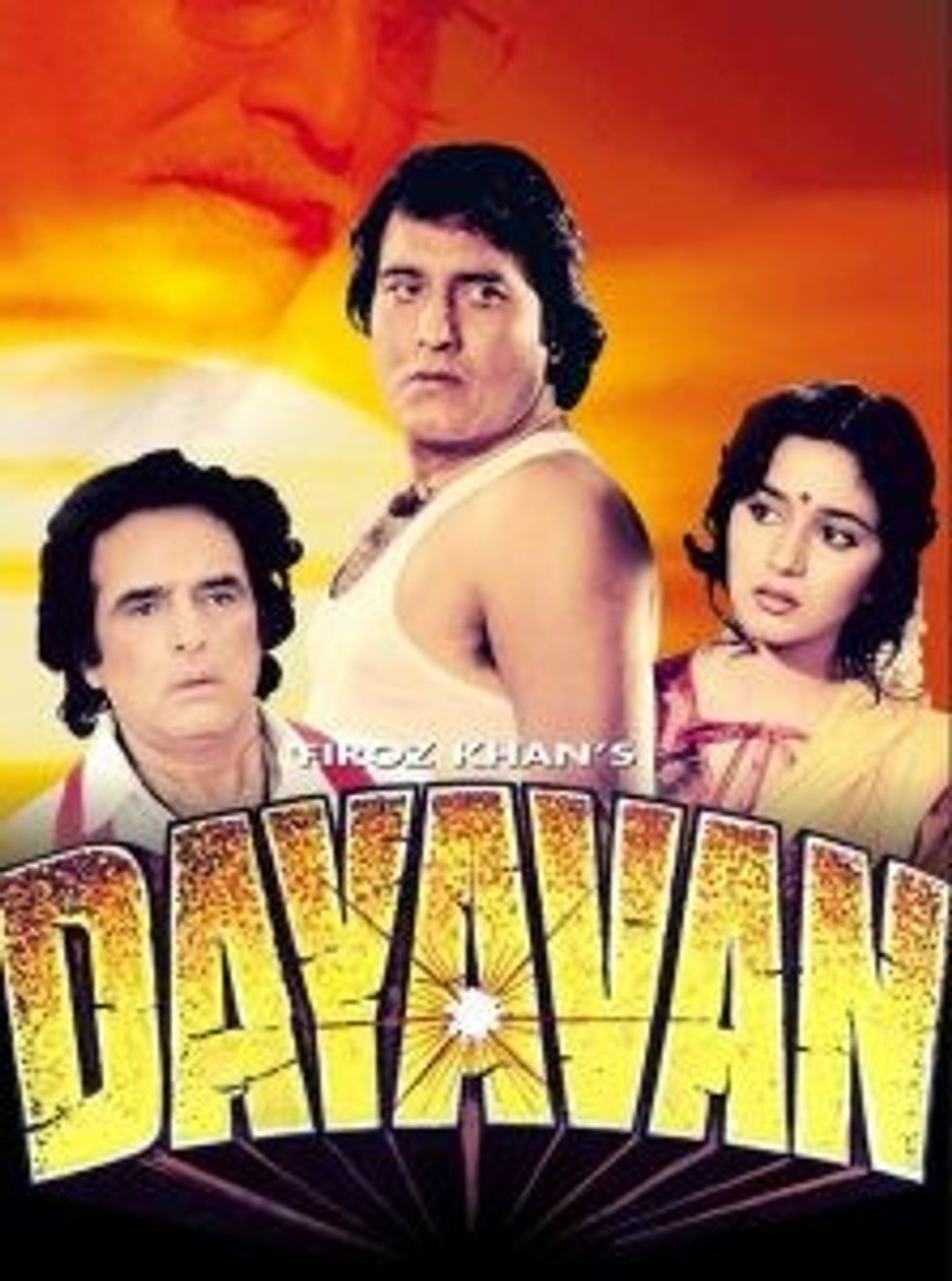




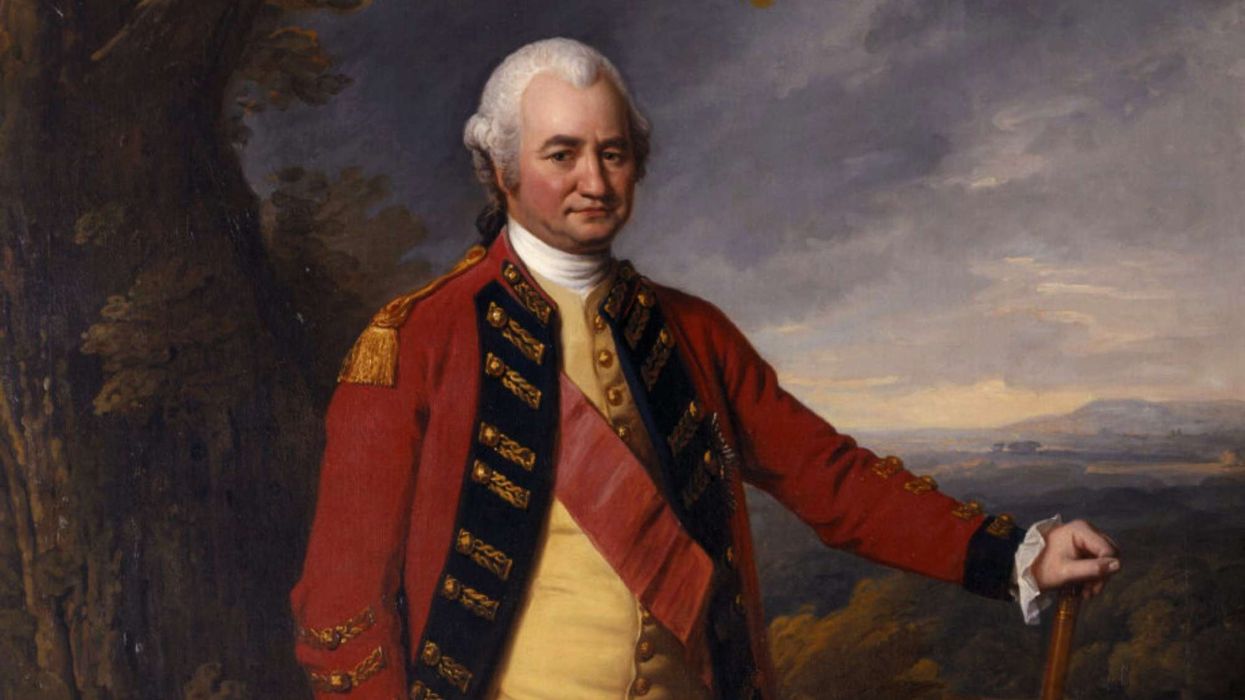
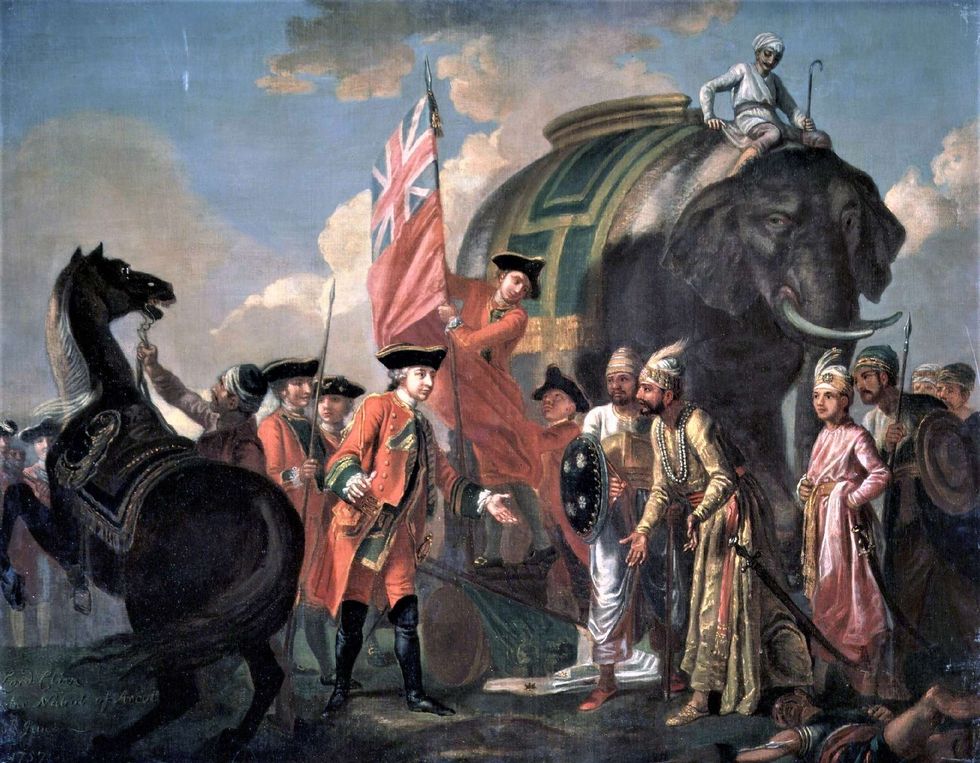 Clive meeting Mir Jafar after the Battle of Plassey 1757
Clive meeting Mir Jafar after the Battle of Plassey 1757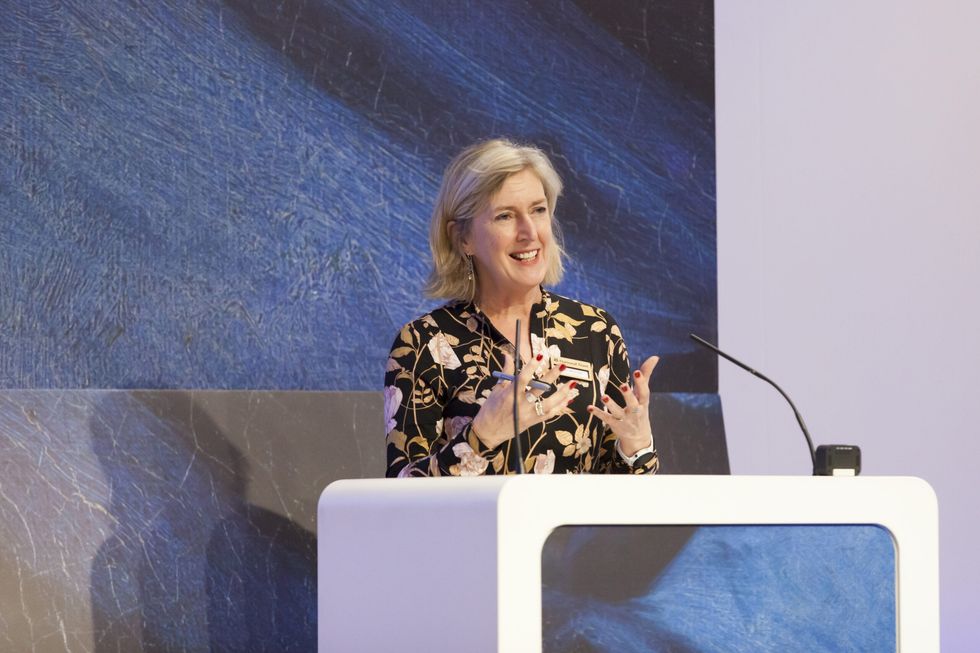 National Trust director general Hilary McGrady
National Trust director general Hilary McGrady 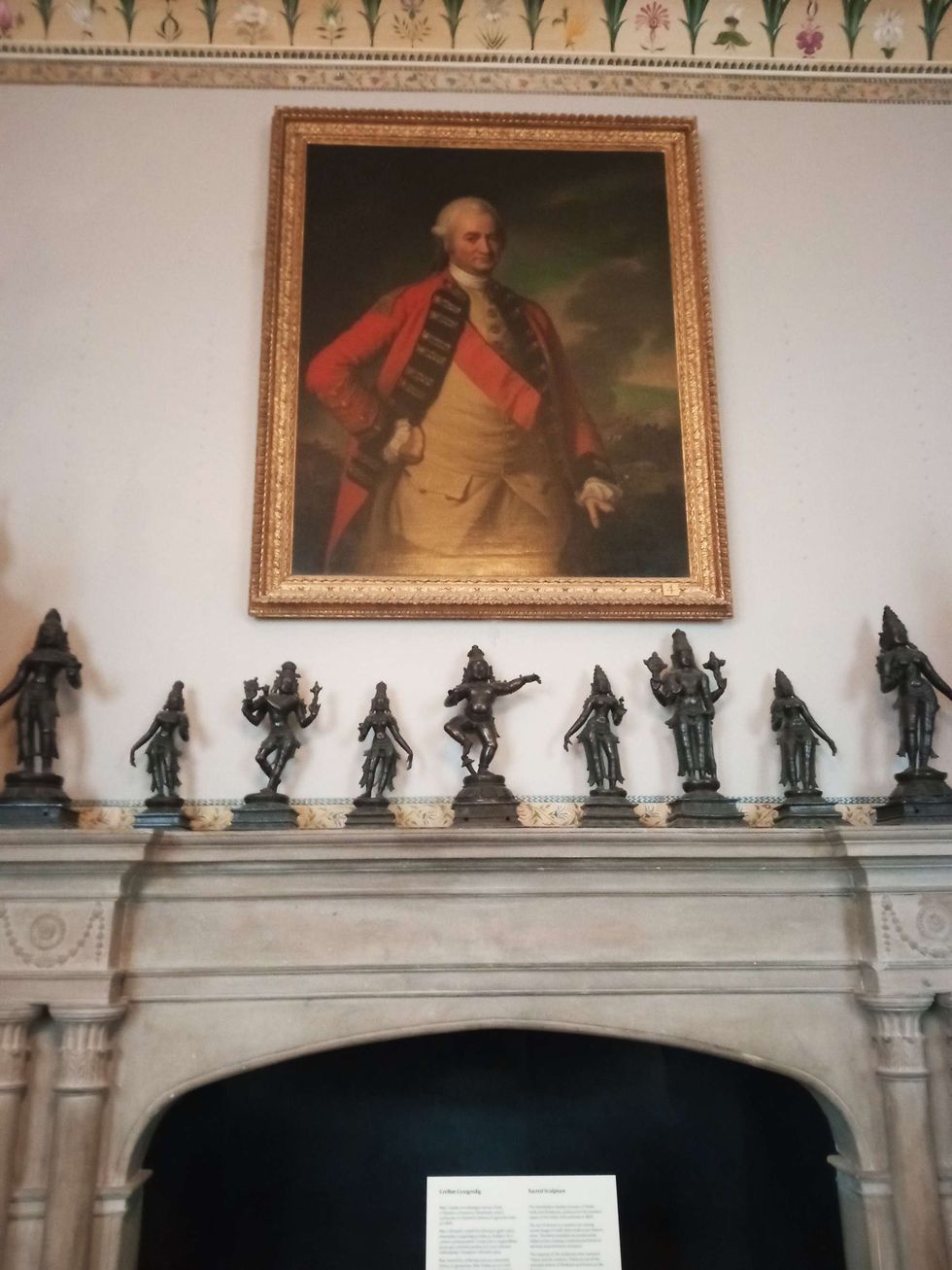 Powis Castle photo of four Clive dominates Hindu Gods
Powis Castle photo of four Clive dominates Hindu Gods 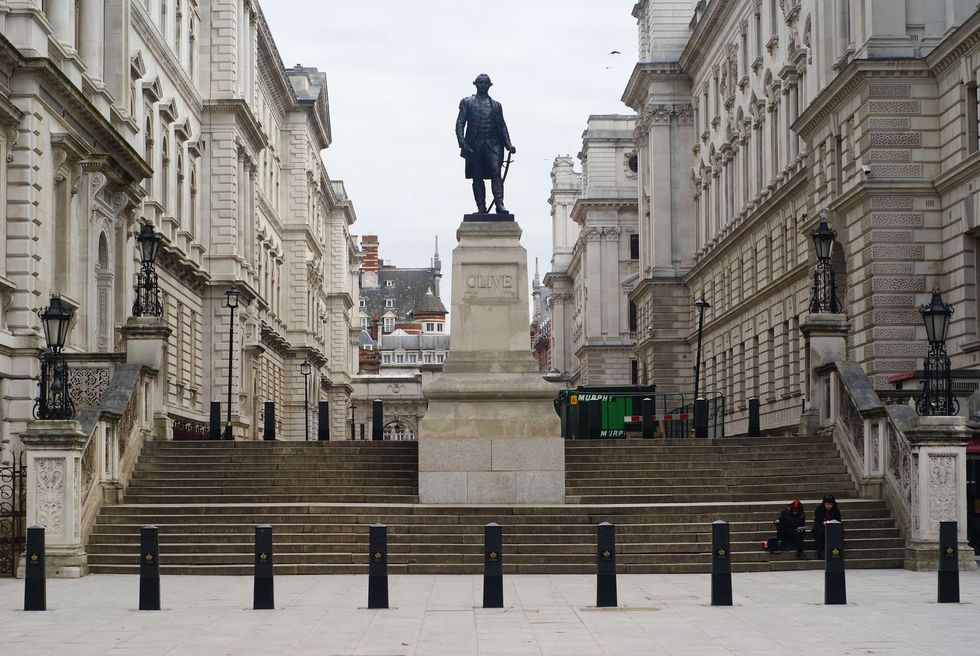 Clive of India at Foreign Office entrance
Clive of India at Foreign Office entrance 





